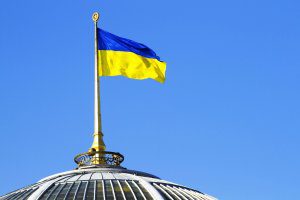
KYIV. Jan 18 (Interfax-Ukraine) – The acquisition of Normatek company would allow Volia Group to expand its presence in the B2B (business to business) segment, Volia President Serhiy Boiko has told reporters.
He said that Normatek with the 10.5 GHz and 5.5 GHz radio frequencies range access licenses provided services to around 10 corporate clients and planned to enter the B2C (business-to-customer) market.
“We are the B2C market that this company missed. That’s why after holding negotiations with the owners we understood each other how to more efficiently use the opportunities opened with the licenses. For use this is the resolving of issues linked to B2B segment when we need to connect business center or clients to whom it is expensive to lay a cable. In this case we can use wireless solutions,” he said.
Boiko said that by March the company plans to design a business case how to earn larger funds compared to what they earned with 10 clients. At present, the company launched a pilot Wi-Fi hotspots downtown Kyiv, in particular, on the Sofiyska Square.
He said that investment in the acquisition of Normatek was up to UAH 5 million.
Boiko said that Volia Group could acquire more assets this year.
Volia Group is managed by SigmaBleyzer private international investment company and Providence Equity Partners fund.
Volia is a large provider on the cable television market and the market of broadband access to the Internet in Ukraine.

KYIV. Jan 15 (Interfax-Ukraine) – Ukraine in 2015 moved forward on the way of reforms, and the positive decision of the European Commission on the visa free regime for Ukrainians and the launch of the EU-Ukraine Deep and Comprehensive Free Trade Area (DCFTA) are evidences of this, Ukrainian President Petro Poroshenko has said.
“Despite fierce counteraction of Kremlin, DCFTA with the EU entered into full force on January 1. Unprecedented migration crisis did not hinder the decision of the European Commission on the completion of the assessment mission on the implementation of the Visa Liberalization Plan of Actions and we obtained the decision on the visa-free regime though several months ago few people believed in that inside and outside the country,” Poroshenko said at a first press conference in 2016 in Kyiv on Thursday.
The positive decision of the European Commission on the visa-free regime “is the indicator of positive assessment of reforms in Ukraine by the EU and the world,” he said.
Poroshenko said that reforms in 2015 were launched in various spheres, but not all of them have yielded results yet.
“Nowhere and never did the war lead to thriving of the country. We are now facing military aggression against our country, military actions on our land. It is not just a military aggression. Since January 1, a powerful large-scale economic aggression has been started imposing embargo on a great range of Ukrainian goods,” he said.
Commenting on the achievement of Ukrainian authorities in 2015, Poroshenko said that the country “ensured the activity and capability of the international coalition in support of Ukraine.”
“A very bright demonstration of this fact was the vote of 177 UN countries electing Ukraine a non-permanent member of the UN Security Council,” he said.
“When you come to Yavoriv training center [Lviv region], you will see dozens of flags of our allies. These flags are a symbol of our military-technical cooperation with various countries of the world,” the head of state said.
“Last year ended with a decision of all 28 EU members on the prolongation of sanctions against Russia for its continuous aggression against Ukraine and non-fulfillment of the Minsk agreements. I guess you all know that it required certain efforts from our Ukrainian team. Increasing economic crisis of Russia is a price for aggression against Ukraine,” Poroshenko said.

KYIV. Jan 15 (Interfax-Ukraine) – Top managers of Sumy Regional Administration have reached an agreement with investors from Azerbaijan on opening a soybean plant with a crushing capacity of 220,000-250,000 tonnes in Romny district and investment of up to $22 million, Sumy Regional Administration Head Mykola Klochko has said.
“In addition, it is planned to launch the first phase of alternative fuel plant, particularly, bioethanol, on the basis of the former Velyko-Zhovtnevy sugar refinery in Bilopillia district in 2016. Investment in the plant is up to $30 million,” the regional administration reported on its website, citing Klochko.
He said that he is confident about these projects as they have concrete agreements.
He said that it is planned to create over 200 jobs at the initial stage of the soybean plant.
Other details on investors are not given.

KYIV. Jan 15 (Interfax-Ukraine) – The program of the socio-economic development of Kyiv for 2016 provides for the allocation of UAH 879.5 million to Kyiv Metropoliten for building the fourth subway line from Velyka Kiltseva Street to the Troyeschyna residential area.
According to the report published in the Khreschatyk newspaper, the program of socio-economic development foresees the completion of building the fourth line of the Kyiv subway by December 2020, and the total cost of the project is UAH 6.903 billion. At the same time, as of the beginning of January 2016 investment in the project amounted to UAH 48.097 million.
In addition, the program foresees funding in the amount of UAH 112.064 million for chemical grouting on some sections of the Kyiv subway lines in 2016.
The total capital expenditure of the company in 2016 under the program will stand at UAH 1.017 billion, including UAH 68.019 million from the special fund of the city budget and UAH 949.145 million at the expense of its own and borrowed funds.
According to the report, the program provides for financing in the amount of UAH 156.881 million for Kyivpastrans. Among the largest projects of the company for 2016 is the reconstruction of tram tracks and stations, as well as procurement of trams.

The Ukrainian business sector has repeatedly stressed that only systematic, targeted and, most importantly, efficient performance of the executive agencies could be the key to any high-quality transformation. This process should be closely monitored, according to the Anti-Crisis Council of NGOs and its member, the Ukrainian Association for Quality. The Association has recently conducted a professional analysis of the performance of the Ukrainian Ministry for Economic Development and Trade, which is one of the major regulators in the industry and economy in general, and revealed a chain of inefficient operations.
The situation with management of other central executive agencies is similar, the experts claim, and therefore they suggest that the Anti-Crisis Council of NGOs as the largest association of business organizations could analyze the government’s performance without limiting itself to individual ministries.
“We have to understand that nobody will do our “home task” instead of us, and the list of the tasks includes the fight against corruption, deregulation of businesses, the introduction of technical regulations and standards in line with European ones, modernization of enterprises, and a reduction in energy consumption in the industry as well. This cannot happen without effective public administration, at least to the degree that is sufficient to make Ukrainian producers and the economy competitive and prosperous,” President of the Ukrainian League of Industrialists and Entrepreneurs and Chairman of the Anti-Crisis Council of NGOs Anatoliy Kinakh said.
“They should examine the efficiency of management systems in the executive branch in general and systems of quality management in particular. For example, performance, operation and services provided by the Economic Development and Trade Ministry, including processing of correspondence and proposals by NGOs and businesses, do not meet modern requirements, existing standards and are of poor quality,” President of the Ukrainian Association for Quality Petro Kalyta said.
It must be noted that the business sector has repeatedly pointed out that only improvement in public administration, consistency of measures to develop the economy, industry, agriculture and other spheres of public life and entrepreneurship will allow the country not only to survive the crisis with dignity, but become a modern and strong economy.
The Ukrainian Association for Quality is ready to share its reports and provide professional consultations. Such examination is made not only to conduct a SWOT analysis of strengths and weaknesses, but also to determine immediate steps to solve the problem. For example, it is proposed that ministries’ personnel should undergo additional training with the involvement of external professional organizations and professionals to introduce European quality and excellence models, namely the EFQM Excellence Model, the Common Assessment Framework (CAF), etc., which could be utilized both for work of the executive agencies and for reforms being implemented in the country as well.
The experts advise that the concept of public policy in the field of business excellence of enterprises should be adopted as soon as possible along with measures aimed at closer cooperation between the government, society, businesses, top managers, and corporate personnel.

KYIV. Jan 14 (Interfax-Ukraine) – Public joint-stock company Ukrtransnafta will modernize the Druzhba trunk oil pipeline in 2016 and will replace 68 kilometers of pipes as they are deteriorated, the company’s press service has reported.
The press service said that the replacement of pipes is the optimal option for providing reliable oil transit to Europe via Ukraine.
The approximate cost of the project would be UAH 650 million. It is also planned to replace four oil pumps and nine electric engines.
As reported, Ukrtransnafta Director General Mykola Havrylenko said in an interview with Interfax-Ukraine that the company would retain the oil transit volume via Ukraine at slightly over 15 million tonnes in 2015, which is the same as in 2014.
The operator of Ukraine’s oil transportation system is Ukrtransnafta, which is 100% managed by Naftogaz Ukrainy.